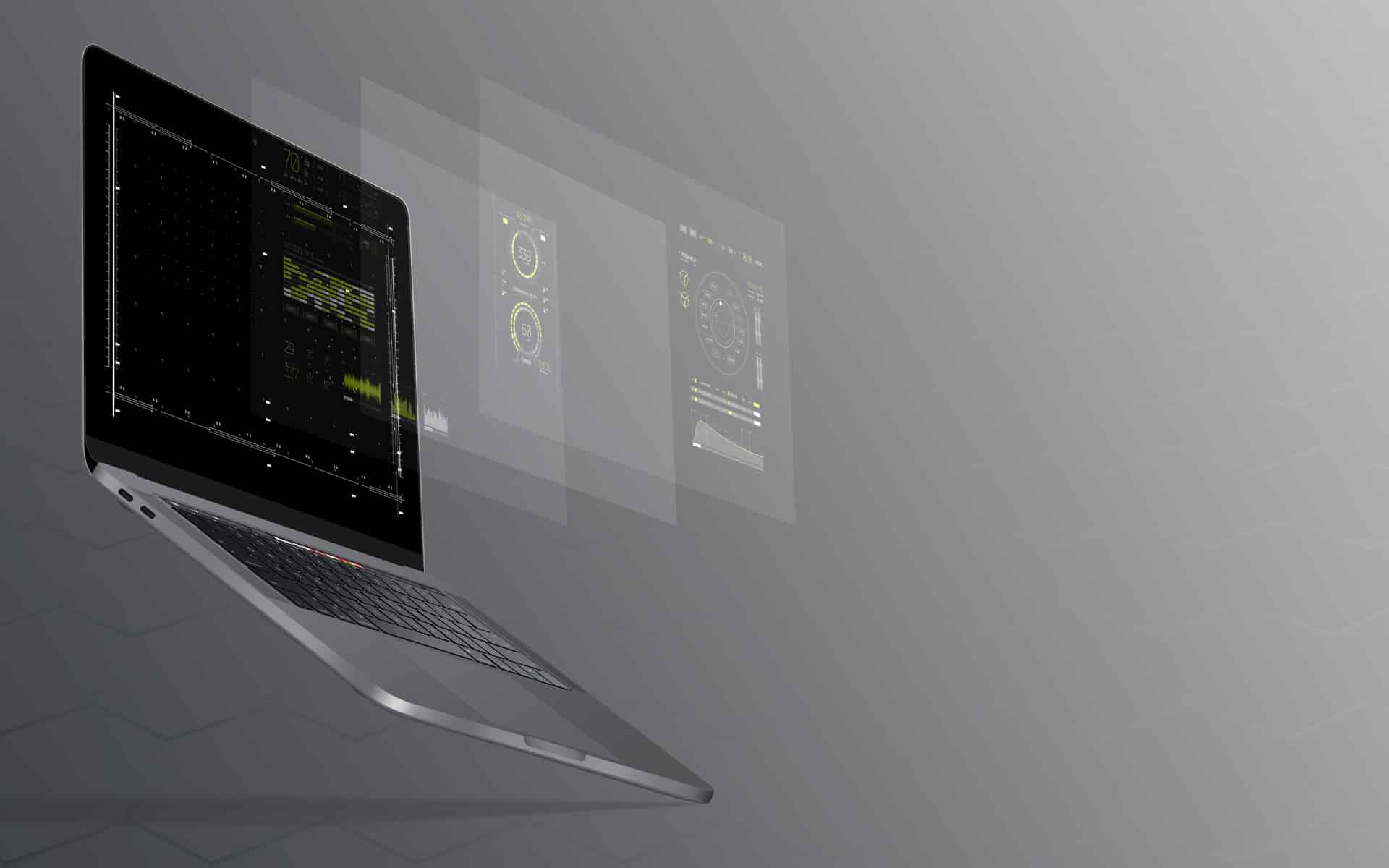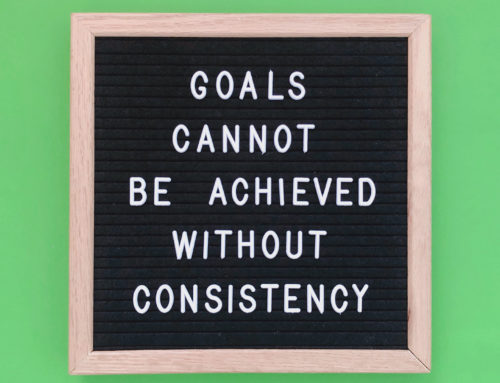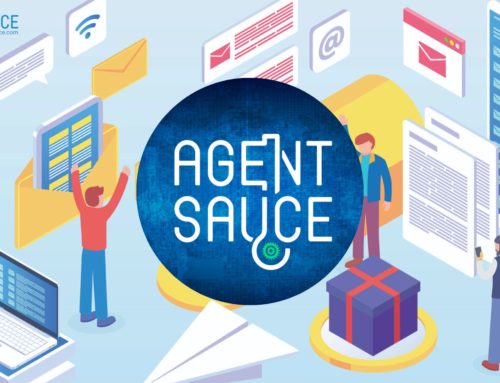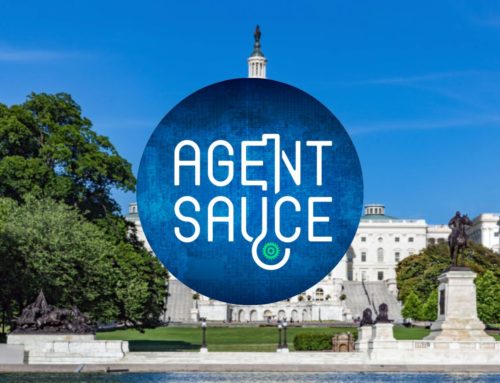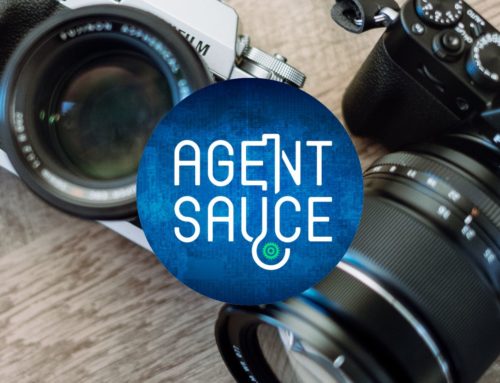Doug recently visited Dell Technologies World 2018 in Las Vegas and came back with some amazing insight into how tech can be used to enhance the human experience. Listen below:
- Dell EMC is more than just your desktop PC – Dell helps power the Internet with specialized storage and computing solutions for major companies like Google and Microsoft.
- Non-Profit Supercomputers – creating personalized cures via genome analysis.
- Human and Virtual/Augmented worlds are colliding – Tech companies are providing greater ways for people to enhance their lives with augmented reality.
Tech Is Enhancing The Human Experience Podcast Transcript
Adam Small: Hi there, welcome to the Real Estate Marketing podcast, I’m Adam Small, and with me as always is Doug Karr.
Douglas Karr: Hello sir.
Adam Small: How you doing today Doug?
Douglas Karr: Well rested.
Adam Small: Well rested. You should be, you had a really long trip there-
Douglas Karr: Great trip-
Adam Small: Last week, I guess is when you got back?
Douglas Karr: Yep.
Adam Small: So you went out again to Dell World, which was in Vegas again-
Douglas Karr: Officially Dell Tech World.
Adam Small: Oh, Dell Tech World now, okay. So, where you get to learn about all sorts of amazing things that Dell is-
Douglas Karr: Yeah.
Adam Small: Promoting and working on, and their technologies and stuff-
Douglas Karr: It’s kind of a cool even because it’s not open to the general public-
Adam Small: [crosstalk 00:00:39] invited?
Douglas Karr: Yeah, it’s an appreciation conference for their biggest clients and-
Adam Small: Oh, okay.
Douglas Karr: So it’s like 15,000 people. I think it was like 13, maybe 13,000 people showed up.
Adam Small: So Dell is so big that they can throw a party for their 13,000 biggest clients?
Douglas Karr: Yeah, and invite people like Sting to sing to us, and-
Adam Small: Nice, nice, yeah. So, that’s pretty impressive in and of itself. So, Dell Tech World, so they’re talking about the stuff that they’re working on, they’re doing, they’re showing appreciation for their clients right?
Douglas Karr: Yeah.
Adam Small: So, what was probably the most interesting thing outside of getting to see Sting? Interesting tech thing I should say that you saw going on at Dell?
Douglas Karr: Well, the first thing, for people listening, most people tend to think of Dell as just, hey that’s where I buy a laptop-
Adam Small: Right, it’s a computer company. I buy computers, maybe a server or [crosstalk 00:01:33]
Douglas Karr: Right. But it’s not, it’s actually Dell EMC, is most of the storage for the Internet. So their clients are Google and Microsoft and Amazon and [crosstalk 00:01:43] everybody else.
RSA which is a Security firm, Dell servers, Dell laptops. They do a lot of … They do six billion dollars for their research and development every year-
Adam Small: That’s a big budget for R&D.
Douglas Karr: Yeah, huge. And it’s because it’s not a public company anymore. So he’s able to take a lot-
Adam Small: Right, he bought it all back, right? Micheal Dell, didn’t he?
Douglas Karr: Yeah.
Adam Small: Yeah.
Douglas Karr: And so, it’s pretty eyeopening from … Like I don’t tend to get into tech that deeply. So it’s been really eyeopening for me and changed my perspective as far as … Are the robots coming to replace us and you know, that type of thing. ‘Cause the media tends to stir stuff [crosstalk 00:02:29]. If a autonomous car crashes, it’s this horrifying story, even though 22,000 people die every day in car accidents.
Adam Small: But we had one die in the last year, so …
Douglas Karr: And so, I think it’s a cool look at technology that’s really inspiring. So I’ll give like some of the interesting ones. There’s a company TGen out there that … And by the way, I should say, thanks to Dell for inviting me, I was paid to be there-
Adam Small: Right, right. Got to get that disclosure out there first, to begin with.
Douglas Karr: Co-host of Dell luminaries. So if you’re [crosstalk 00:03:09] pod casting, you can look for Dell luminaries and that’s where you’ll find these stories and interviews.
But, like one of the companies, TGen has two of the top 25 fastest supercomputers in the world. It’s on nonprofit company that is using … Has mapped the human genome which is four terabytes per person by the way.
Adam Small: That’s a lot of data.
Douglas Karr: That’s a lot of data. And basically, what they’re doing is identifying obscure diseases and how utilize that data in DNA to produce medicine and treatment for those people. And so we’re like a lily or Roche or something, they can’t afford to go after small … They have to go after big diseases like diabetes and stuff, so they can [crosstalk 00:03:59]
Adam Small: They can make a profit.
Douglas Karr: Yeah, where they can at least make their money back. But TGen is a nonprofit, and have been doing it forever and so they … These guys are, I mean they are processing so much data and everything else and so, some of the treatments are working and they’ve cured some of strange brain diseases and everything else.
Adam Small: So they’re doing that on an individual basis. Are they customizing, like in the genome for the person in particular [crosstalk 00:04:25] customizing the treatment [crosstalk 00:04:27] genome-
Douglas Karr: They’ve like 100,000 people’s genomes mapped from front to back. And by the way these numbers, I’m not making them up, but I believe that’s what I was told. And so what they’re able to do is basically take a unique sick crowd of people that might have 50 people that have this obscure disease, and then map that, and then compare it to the rest of the population, identify what the differences are, and then come up with solutions.
And then, all the data that they have, they share.
Adam Small: That’s amazing.
Douglas Karr: They literally have people downloading it all over the world and utilizing [crosstalk 00:05:04] this data.
Adam Small: To further benefits that they’re [crosstalk 00:05:05]
Douglas Karr: So that’s where, when you hear about the big evil machines, like these guys are doing … I mean they’re saving people’s lives every single day.
Adam Small: Right, right, amazing.
Douglas Karr: Yeah. So that’s one. Another company that I was really intrigued with, there’s a company called Daqri D-A-Q-R-I, pronounced like the drink daiquiri-
Adam Small: Right.
Douglas Karr: But these guys basically created glasses, so augmented reality glasses. And, the augmented reality glasses you can even have prescription lenses on. And so, the cool part of this is, they’re basically built a system where, you can tag communicate with someone across the country or whatever, and you can tag things in three dimensions.
So let’s say your house has a heating an air conditioning unit and it had a broken valve three years ago. We are using these glasses, your technician after he fixes it, could tag it and say hey, this is Doug, I came in and I fixed this three years ago, here’s the earth, you know, not [crosstalk 00:06:21]
Adam Small: Fixed this on this day.
Douglas Karr: Fixed this on this day, here’s what was wrong, everything else. And, three years later, someone could come with those glasses and see that tag-
Adam Small: Oh very interesting.
Douglas Karr: The reason why that’s … If you’re thinking, well that’s okay, we’ll start to think about things like being able to repair equipment that you don’t know how. So if you’re in the rural America and your car breaks down, if you have these glasses, you could literally get on the … Connect with an Engineer across the world and he could walk you through. Or, you could just learn with these classes how to fix the equipment that you have.
Adam Small: Right. Well, the other application that I see for that of the top of my head is, one of the things that happens with any sort of machine or computer, whatever that’s built is that, there are in fact problems with automobiles say, right. So they have recalls on those for a reason. And what happens is if something starts breaking, and a few people take it and they get it fixed at the dealers, and then the dealers are able to start identifying that may need a recall right.
So now when you’re talking about with glasses and stuff like that, if you’re better able to track across the board. Because some people, they don’t get things fixed like they should. Or they take them to not the dealer but to a regular mechanic and he doesn’t report it. But when you start having the ability to record that stuff across the board and any environment on pretty much anything, then you’re also able to see much better detail as what’s going on with something from a historical perspective.
Douglas Karr: You’re nailing it. One of the things that they’re doing, is like working with the US Army on preventive maintenance.
Adam Small: Right.
Douglas Karr: So if anybody’s … Both Adam and I have been in the military, you have preventive maintenance on machines, so you might have this four page booklet with 400 steps on how to clean and grease up a piece of machinery, and you can’t miss a single step.
Adam Small: Right.
Douglas Karr: Well with something like this, not only could you walk someone through every step, you can validate that they’re doing every step. And so, if a piece of machinery fails, I could either go back to the recording and see what happened or whatever. And so … Man, just fascinating technology.
And, part of it is, you got to think about 3D space is a hard thing to tag, because if, Adam is a foot taller than me, the tag has to be-
Adam Small: The perspective is different.
Douglas Karr: Yeah, and so these guys actually have like when they’re doing things, they have a bar code that they look at as they enter a room or whatever. And that sets … And then everything is measured from that barcode.
Adam Small: Perspective, that’s interesting.
Douglas Karr: It’s wild, wild stuff. Another company out there … I’m going to get the … Draper. Draper created the first system … We were joking about it on luminaries but, we were joking about how George Clooney always floats off into space. The tether breaks, like in every serious movie, the tether breaks, and the person floats off into space.
Well Draper created a system that always brings the astronaut back to the … These guys have it right [crosstalk 00:09:54] now.
Adam Small: An unbreakable tether?
Douglas Karr: It’s not a tether. It’s that … It’s a return jet pack kind of thing. And so, it doesn’t matter their orientation, it doesn’t matter whether they’re passed out, it doesn’t matter whether they’re spinning out of control, this system will bring them back to the … Now, here’s the thing is, what people don’t realize on earth, we have gravity, we have gravitational waves, we have GPS.
Well in space, you don’t have any of that. So I’m sure this is top secret stuff that they’re working on. But they’re able to do that in space, no gravity, no GPS, no nothing, able to basically take an astronaut that might be spinning out of control somewhere, and get them back. Like that’s some cool stuff.
Adam Small: Have they tested it yet?
Douglas Karr: Let’s hope that they don’t have to. But … And then another one that was just fascinating was, we got to talk to the CEO of McLaren. And so McLaren for anybody out there, one is their formula F1 cars, they’re also super cars if you’re … I think they’re a million bucks apiece if you want to order one.
Adam Small: Chump change, right?
Douglas Karr: Yeah. And then they have a couple other companies there where they do commercial work and everything, because of the stuff in. So people don’t realize they have a couple hundred PhDs that work at McLaren. And, the cars have something like 21 sensors in them. So not a terrible amount of sensors-
Adam Small: Right, that doesn’t seem very high.
Douglas Karr: But these sensors literally send terabytes of data back through to their data center when they’re racing, not just at the race. It sends it all the way back to their super computers and everything else, and these guys capture that data and they know exactly what to adjust on the car and how to adjust it.
And so, that was pretty fascinating just to learn, like, imagine that streaming data and you got to make real life changes mechanical to a car to improve it. But the-
Adam Small: But they’re a long way from the days when it was just, put it out there and let it run, you know.
Douglas Karr: Exactly.
Adam Small: And, I seem to recall that these guys would have a notepad and they’d write down the number of laps and they were figuring out how much the miles per gallon they were getting, based on their fuel consumption, they’d guess when to pull them in, and there’re times they would run out of gas and stuff like that, which I know is called the gas gauge right guys?
Douglas Karr: Yeah.
Adam Small: But, they typically don’t have that, they’d do the calculations. I’m sure with these sensors, they’re much more accurate.
Douglas Karr: Well, and here’s where it’ll flip on you is, they have … Their modeling and simulation systems are so accurate, that they adjust the mechanical car based on the simulation.
Adam Small: Really?
Douglas Karr: So, if it changes by three degrees out the day of the race, they plug that into the simulation and the simulation tells them how to adjust the car. And it’s so accurate that it works.
Adam Small: Incredible.
Douglas Karr: And so, we spent all this all these years trying to make a simulation as good as real life, now we actually have simulations that-
Adam Small: Our [crosstalk 00:13:26]
Douglas Karr: Are better. And so I was blown away by that one, it was just absolutely incredible. And so, these are just a few things, and then the good thing that Dell released there, the good story was, they’re dedicated to getting rid of the ocean plastics, and so now all of their packaging and all of their computers now have a certain percentage of plastic in it that was pulled back from the ocean, which is pretty cool too.
Adam Small: Good.
Douglas Karr: So feel good story and that too.
Adam Small: [inaudible 00:14:02] environmental awareness there.
Douglas Karr: Yeah. Just, stuff like that, it really changes your perspective of how technology is being applied and used, and people are doing some wicked smart things out there.
Adam Small: Well cool.
Douglas Karr: Yeah.
Adam Small: Very cool. Sounds like a great conference go to and, you interviewed what seven [crosstalk 00:14:21]
Douglas Karr: 11 [crosstalk 00:14:22]
Adam Small: 11 people for your podcast.
Douglas Karr: Yeah, our last interview was, we interviewed the CIO of NATO.
Adam Small: Well I imagine he couldn’t say a whole lot.
Douglas Karr: They have 26 data centers around the world working with, I think it’s 28 countries and 42 partner countries. So imagine all the communication issues and everything else to get the word out. I never knew that. I never even thought about them having a server. Maybe a Gmail account or something, you know.
Adam Small: Yeah, Gmail account.
Douglas Karr: It’s a [inaudible 00:14:59] here, you’re like holy smokes man, you don’t even … It’s just unimaginable how much people are relying on technology nowadays, and how it’s changing everybody’s lives.
Adam Small: Very cool, very cool. Well it sounds like an event that I should probably get myself invited to next year. So, you know-
Douglas Karr: Yeah. I get an assistant.
Adam Small: Wait a minute here.
Douglas Karr: Yeah, we already talked about terrible an employee you are.
Adam Small: That’s why I own a business now.
Douglas Karr: You and me both buddy.
Adam Small: Well hey Doug, thanks, appreciate you filling us in on Dell World. It was a very interesting-
Douglas Karr: Dell Tech World.
Adam Small: Dell Tech World, forgive me please. Very interesting here. If you guys want to learn more, I would say you could contact us at info@agentsauce.com, but really in this case, you probably need to contact Doug, and that’s-
Douglas Karr: Doug@dknewmedia.com. And you can just look up Dell Tech World. I think they actually have all the speakers and all the speeches online, so you can actually go see some of these things that they’re doing. It’s incredible.
Adam Small: Great.
Douglas Karr: And they picked like a selection across multiple industries to show variance there, so.
Adam Small: Very cool.
Douglas Karr: Yeah.
Adam Small: Well thanks for listening, have a great day. And if you like what you hear, don’t forget to like and subscribe-

